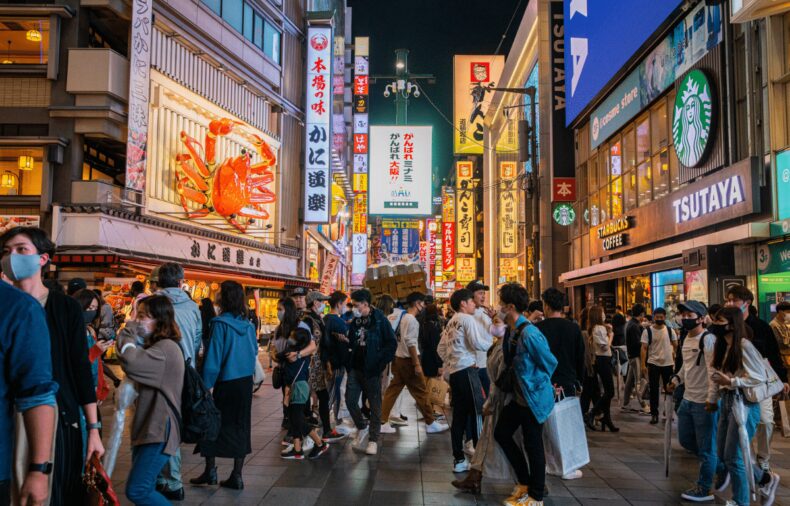Ever since the “bubble burst” (an allegorical term for the economic crisis faced by Japan back in the early 1990s), ‘The land of the rising sun’, has crossed its critical juncture and proceeded to become the third-largest economy in the world. But assessing its current state, one could hypothesize that the condition has already reached rock bottom. The looming headwinds are consistently ignored by the authorities as if they’re left to deteriorate on their own.
The key reasons for its stagnating economy can be narrowed down to three things: poor demographics, a staggering level of diminishing immigration, and countries’ ineffectual fiscal policies. Consequently, the current consumer inflation scale points towards a whopping figure of 4%, the highest since 1981.

Just in time, Finance Minister Shunichi Suzuki warned on Monday, about the precarious situation of the Japanese economy and how the markets are continuously testing the Central Bank’s ability to push down interest rates, allowing the government to service its debts.
“The severity of Japan’s public finances has increased to an unprecedented degree as we have compiled supplementary budgets to respond to the coronavirus and similar issues,” Suzuki said in a policy speech opening a session of parliament.
Japan’s Indecisiveness
According to the International Monetary Fund, the coronavirus pandemic has caused a sharp decline in the economies of prominent industrialized nations. The US and UK are not excluded, but their rebound status was much swifter than that of Japan, which is still holding on to the ropes for ascension. The former group’s growth rate was about 5%, while Japan’s growth rate is a solid 1%.
“The government will strive to stabilize the management of Japanese government bond (JGB) issuance through close communication with the market. Overall JGB issuance, including rolling over bonds, remains at an extremely high level, worth about 206 trillion”, Suzuki said.
“We will step up efforts to keep JGB issuance stable. Public finance is the cornerstone of a country’s trust. We must secure fiscal space under normal circumstances to safeguard trust in Japan and people’s livelihoods at a time of emergency”, he further indicated.
As many economists, including Paul Krugman, believe, Japan is caught up in a liquidity trap. With no significant changes being made to its standard monetary policies, it is stipulated to not expect any giant leap in the near future.
As previously discussed, given the structural deficiencies–including the reducing young population and the expanding number of senior citizens– the only hope, a young working population, is now a far-fetched dream for the country.
Furthermore, the eye-popping speed at which the Yen has depreciated over the past six months has led to an immense outflow of capital from Japan.
The sluggish economy of the country projected an impetuous decision during the corona pandemic, becoming the last among the group of seven nations to ease border restrictions and limit the inflow of immigrants—people who used to be permanent residents for years—but their sole excuse for this restriction was that they were “foreigners”, a trait the international economies found despicable.
Japan, which once recovered from World War II and emerged like a phoenix, obtaining its lost fortunes and flourishing in its riches, is now retrospectively looking back to its bubble era (or, as the Japanese call it, “Baburu Jidai”).
Future Prospects

The only upside derived from the situation is the booming visitor consumption—the only factor contributing to inflation control as it provides foreign currency in ample supply. Moreover, observing the favorable winds, the Japanese Government is trying to boost foreign consumption through attractive tourist packages—setting a target of increasing visitors by 60 million by 2030. Whether this target can be achieved or not, entirely depends on the resilience shown towards this particular industry and how they could raise the standards for regional tourism.
Another possible solution the Japanese government prescribes is wage growth—one that exceeds price increase —which can, perhaps, temporarily satisfy a population that has suffered from stagnant wages for decades but is not a permanent remedy to the predicament.
Japanese Prime Minister Fumio Kishida expressed his stance, saying small businesses must make specific decisions on raising wages and passing costs on to consumers to ease the deflationary process. Most importantly, the Bank of Japan (BoJ) should consider reviewing monetary policy and ensuring its long-term effectiveness.
Following the latest news from Japanese fashion chain Uniqlo, which is raising its wages by 40%, other business groups are also stepping up their game amid fierce competition. “Labor shortages are becoming a serious issue, so that news has probably given competitors a jolt,” said Tomoko Yoshino, president of the Japanese Trade Union Confederation. Prime Minister Fumio Kishida also holds the same view, hoping to restore the Japanese economy to its former glory.













